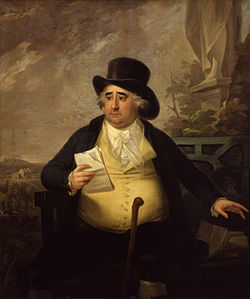Cumnor Hall was to have been the original title of what became Walter Scott’s “Kenilworth”, which was published in 1821. The balled of the same name, by William Julius Mickle, provided inspiration for Scott in taking on this endeavor.
The dews of summer nighte did falle,
The moone (sweete regente of the skye)
Silver'd the walles of Cumnor Halle,
And manye an oake that grewe therebye....
The moone (sweete regente of the skye)
Silver'd the walles of Cumnor Halle,
And manye an oake that grewe therebye....
On January 31st, 1829, we find Scott reading another Cumnor Hall: ‘…Looked over Cumnor Hall by Mr. Usher Tighe of Oxford. I see from the inscription on Tony Foster's tomb that he was a skilful planter, amongst other fashionable accomplishments….’
The book in question is Hugh Usher Tighe’s “An Historical Account of Cumner…”, which reached the public in 1821, the same year “Kenilworth” was published. Tighe provides useful background on Cumner and Scott’s “Kenilworth” in the introduction to his work.
‘The deep interest so deservedly felt, and so openly evinced for every production which emanates from the highly gifted “Author of Waverley”, reflects a corresponding interest on every subject connected with a Tale on which the finest feelings of the mind are unavoidably concentrated. These sentiments, so universally excited by the perusal of this author’s former Tales, can assuredly not have been lessened by his last production of “Kenilworth”, which, perhaps from the circumstances of the case, form the melancholy story of a very young and lovely woman, contending with villainy and treachery, and struggling with the most trying hardships and privations, appeals more closely to the human heart, and is more calculated to excite the warm emotions of pity, than any of his earlier works. It is on the prevalence of these feelings, that I venture to hope, that some account of Cumner where the scene of this fascinating story is principally laid, and the narration of the facts, as given by Ashmole in his Antiquities of Berkshire, may not be deemed utterly devoid of interest….I annex the facts of this melancholy story, as related by Ashmole, and which is alluded to in the latter part of “Kenilworth”. The same narration, in the same words, may be found in Anthony Wood’s MSS in the Ashmoleon collection…’




